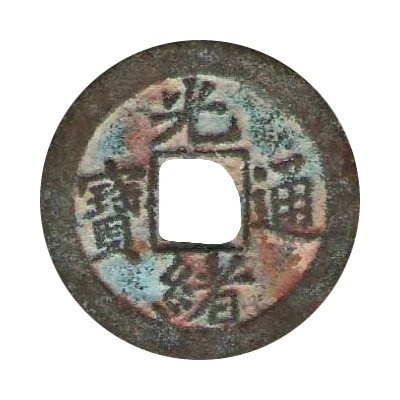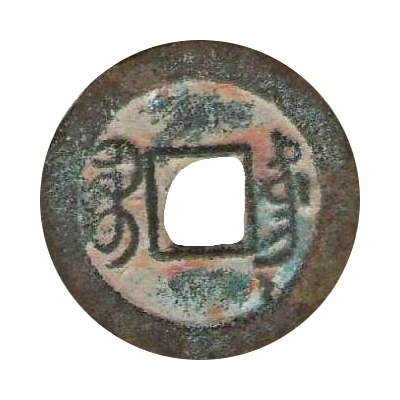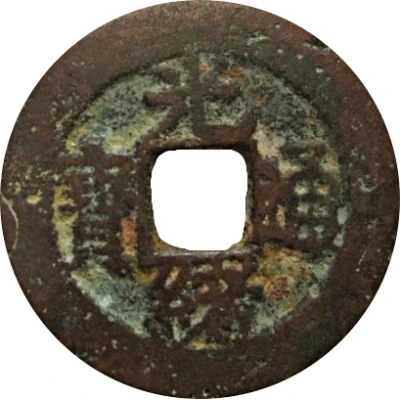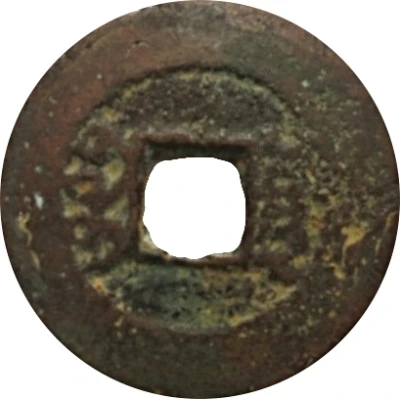


© bbybugs (CC BY-NC-SA)
1 Cash - Guangxu Tongbao; Boo-dung ND
| Brass | - | 22 mm |
| Issuer | Empire of China |
|---|---|
| Emperor | Qing dynasty › Guangxu (光緒帝) (1875-1908) |
| Type | Standard circulation coin |
| Years | 1875-1908 |
| Value | 1 Cash |
| Currency | Cash (621-1912) |
| Composition | Brass |
| Diameter | 22 mm |
| Shape | Round with a square hole |
| Technique | Cast |
| Orientation | Medal alignment ↑↑ |
| Demonetized | Yes |
| Updated | 2024-10-04 |
| Numista | N#48837 |
|---|---|
| Rarity index | 57% |
Reverse
Two Manchu words (read vertically) separated by the hole.
Script: Mongolian / Manchu
Lettering: ᠪᠣᠣ ᡩᡠᠩ
Translation: Boo-dung
Edge
Plain
Comment
During Guangxu's reign, two mints used the name 'Boo-dung': Dongchuan, Yunnan and Yantai (Chefoo), Shandong. While the text is all the same, there are minor varieties that can differenciate the mints.DocTongHead
Interesting fact
One interesting fact about the Standard circulation coin 1 Cash - Guangxu (Tongbao; Boo-dung) ND (1875-1908) from Empire of China made of Brass is that it was designed by a French engraver named Jean-Antoine Bailly. Bailly was a renowned numismatist and engraver who was commissioned by the Chinese government to design a new currency for the country. He created a series of coins that were minted from 1875 to 1908, including the 1 Cash coin made of brass. The coin features a dragon on one side and the Chinese characters "Tong Bao" on the other, which translates to "circulating treasure." This coin was an important part of China's currency system during the late Qing dynasty and is now a sought-after collector's item.

